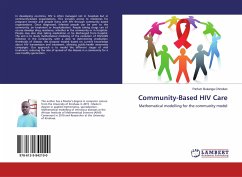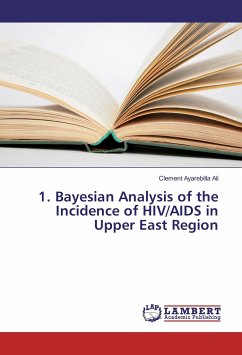In developing countries, HIV is often managed not in hospitals but in community-based organizations. This includes access to medicines for pregnant women and people living with HIV through community based organizations. Once diagnosed, infected people can be sent to the community, on treatment or hospitalization. People taking drugs can of course develop drug resistance, whether in the community or in hospitals. People may also stop taking medication or be discharged from hospital. The aim is to study mathematical modeling of the evolution of HIV/AIDS infection in the community, with a view to determining eradication thresholds of disease. We propose models based on current knowledge about HIV transmission and treatment, allowing public-health awareness campaigns. Our approach is to model the different stages of viral treatment, reducing the rate of spread of the disease in a community for a new healthy generation.
Bitte wählen Sie Ihr Anliegen aus.
Rechnungen
Retourenschein anfordern
Bestellstatus
Storno








